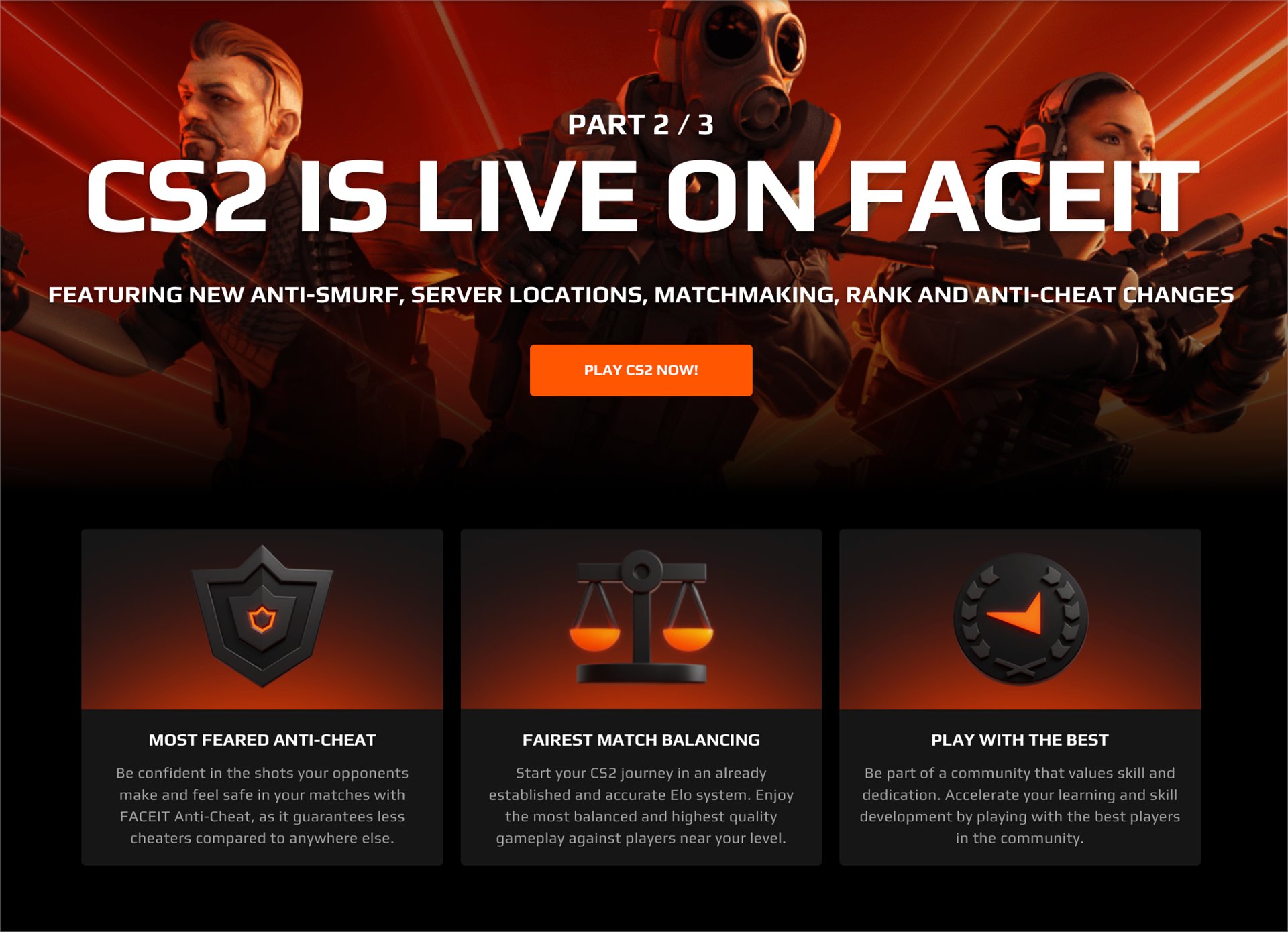The Sweet Life: Buzz from A Honey
Discover the world of news, insights, and tips on living a delightful and fulfilling life.
Why Cheaters Hate CS2 Anti-Cheat Like Cats Hate Water
Discover why cheaters despise CS2's anti-cheat system as much as cats loathe water. Dive in to uncover the secrets behind their frustration!
The Evolution of CS2 Anti-Cheat: Why Cheaters Are Running Scared
The landscape of competitive gaming has undergone significant changes with the evolution of CS2 Anti-Cheat systems. Initially, players relied on basic software measures that often left them vulnerable to various cheating tactics. However, recent advancements in anti-cheat technology have introduced robust mechanisms that actively detect and combat cheating. This evolution has transformed the way developers approach fair play, ensuring that CS2 remains a level playing field. A combination of machine learning algorithms and real-time data analysis has made it increasingly harder for cheat developers to keep up with these new systems, leading to a marked decline in cheating incidents.
As a result of these enhancements, cheaters are now finding themselves on the defensive, leading to a notable shift in the gaming community. The integration of features like behavioral analytics has allowed the CS2 Anti-Cheat system to identify suspicious patterns in player behavior, resulting in immediate action against offenders. Players are now more aware of the risks associated with cheating, understanding that the heightened scrutiny makes cheating not only less effective but also more likely to end in bans. This growing awareness coupled with the effective tools being deployed has left many potential cheaters running scared, desperate to adapt in an environment that no longer tolerates unfair play.

Counter-Strike has evolved into one of the most iconic first-person shooter games since its debut, offering competitive gameplay where teams of terrorists and counter-terrorists face off. Players hone their skills and strategies, and many seek to enhance their experience with various techniques, including cs2 surf commands, which add a unique twist to gameplay.
The Psychology of Cheating in Gaming: What Makes CS2 Anti-Cheat So Intimidating?
The phenomenon of cheating in gaming, particularly in competitive environments like CS2, delves deep into the psychology of players and their motivations. Cheating often stems from a desire for dominance, recognition, or even frustration with the game's inherent challenges. Research suggests that individuals who choose to cheat may exhibit traits such as low self-esteem or a need for instant gratification. These psychological factors not only fuel the decision to bypass fair play but also create a toxic environment that undermines the integrity of the gaming community.
One of the primary reasons CS2's anti-cheat system is considered so intimidating is its reputation for effectiveness and rigor. Players understand that advanced anti-cheat mechanisms employ sophisticated algorithms and machine learning techniques to detect irregular player behavior and enforce strict penalties. The thought of being caught and facing potential bans creates a significant psychological deterrent, making players think twice before resorting to cheating. This heightened fear, combined with the pursuit of genuine skill development and the community's shared values, reinforces the notion that fair play leads to a more rewarding gaming experience.
How Effective is CS2 Anti-Cheat? A Deep Dive into Its Mechanics and Impact on Cheaters
The effectiveness of CS2 Anti-Cheat has been a topic of considerable discussion within the gaming community. At its core, the system employs a combination of sophisticated algorithms and behavior analysis to detect and mitigate cheating. Unlike previous iterations, CS2 has integrated machine learning technologies to continuously evolve its detection capabilities. By analyzing player behavior patterns, it can identify anomalies that suggest cheating, such as aimbot usage or wallhacks. Moreover, regular updates ensure that the system adapts to new cheating methods, thus maintaining a competitive environment for all players.
One of the noteworthy impacts of the CS2 Anti-Cheat system is its effect on the overall gaming experience. Players have reported a significant decrease in the number of cheaters in public games, which has led to a more balanced and enjoyable experience. Additionally, the transparency of the anti-cheat measures has increased player trust in the system. As reported by many users, the elimination of cheaters not only improves fair play but also fosters a vibrant community where skill and strategy take precedence. In conclusion, while no system is infallible, the CS2 Anti-Cheat has shown promising effectiveness in its current implementation.